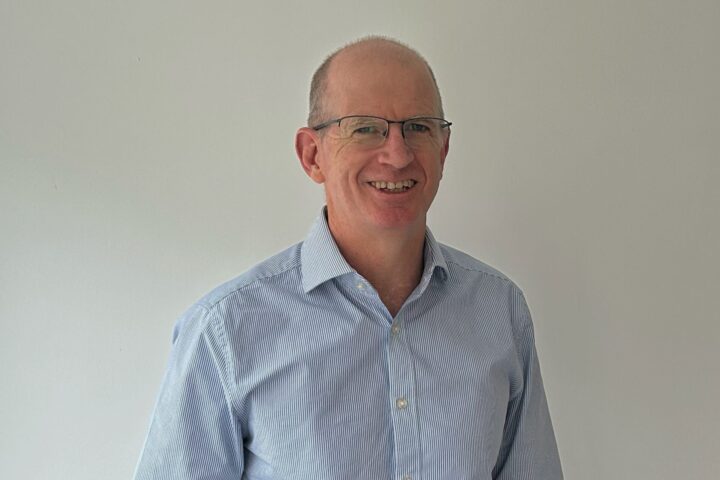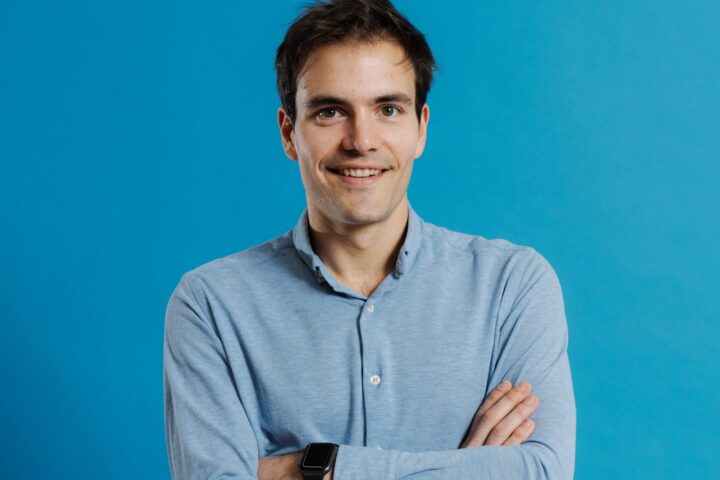Simon Noble (pictured), CEO of Cezanne HR, shares his insights on the evolving HR technology landscape, the recent acquisition of applicant tracking specialist Occupop, and what it means for customers in today’s challenging economic climate.
Can you give us a brief run-through of Cezanne HR?
Cezanne HR is a mid-market HR technology company that has been operating for over 12 years, focused on delivering a comprehensive and highly functional software platform for HR professionals.
Our mission is to provide flexible, easy-to-use solutions specifically designed for small and medium-sized businesses, enabling them to manage human resources more effectively.
Two years ago, our growth accelerated significantly following a majority investment by NorthEdge Capital. This allowed us to move from a purely product-centric approach to a more dynamic, market-driven strategy.
As a result, we’ve nearly doubled in size in the past two years, achieving a 49% growth rate in the UK last year. Our platform now includes a wide range of modules, such as the recently launched compensation planning module for larger organisations, and we continue to expand through organic development, strategic partnerships, and targeted acquisitions like Occupop.
Beyond being a technology provider, we see ourselves as advocates for the HR community, committed to reducing administrative burdens and supporting HR professionals to focus on more strategic, value-added activities.
With a team of around 150 employees, we are dedicated to continuous innovation to meet the evolving needs of mid-market businesses.
What drove Cezanne HR’s acquisition of Occupop, and how will this improve your recruitment capabilities?
Our acquisition of Occupop was strategically driven by the need for greater control and customisation in our recruitment technology. Previously, we operated through partnerships, but we recognised that to truly serve our mid-market customers, we needed a recruitment solution we could fully integrate and develop. The economic pressures businesses are facing make a flexible, user-friendly recruitment tool incredibly valuable.
The acquisition allows us to create a recruitment platform specifically tailored to small and medium-sized businesses. We’re focusing on simplifying the hiring process, making it accessible for companies that don’t have dedicated HR teams or frequent hiring needs.
By bringing Occupop into our ecosystem, we can offer a cost-effective alternative to expensive recruitment agencies, with tools that streamline candidate screening, communication, and selection.
How does Occupop’s applicant tracking technology enhance the Cezanne HR platform for users?
Traditional applicant tracking systems (ATS) are often complex and overwhelming, especially for businesses that don’t hire frequently. Our enhanced platform addresses this by providing an intuitive, user-friendly experience. We’ve designed the technology to be accessible to occasional hirers who aren’t recruitment experts.
Key features include automated CV scoring, priority ranking, and seamless communication integration. Businesses can easily connect the system with their existing calendars and email platforms, reducing administrative burden.
The technology uses intelligent algorithms to help users quickly identify the most suitable candidates, removing much of the manual work typically associated with recruitment.
For mid-market organisations, this means a significant reduction in recruitment costs and time. Companies can now manage their hiring process more efficiently, with tools that guide them through each stage of recruitment, from job specification to candidate selection.
What are the biggest challenges and opportunities for HR tech companies looking to scale right now?
The current economic landscape presents a complex environment for HR tech companies. Economic uncertainty has made businesses more cautious about technology investments, creating both challenges and opportunities.
We’re navigating this by focusing on three key growth strategies: organic development, strategic partnerships, and targeted acquisitions.
Our approach involves continuously developing modules that provide immediate value to businesses. We’re investing in technologies that directly address current business challenges, such as cost-effective recruitment, employee engagement, and operational efficiency.
The economic pressures are actually driving innovation, as companies seek solutions that can do more with less.
The opportunity lies in providing flexible, adaptable technologies that can help businesses navigate uncertainty. We’re seeing increased interest in solutions that can provide strategic insights, reduce administrative work, and support more agile workforce management.
What key trends are you seeing in talent attraction and retention amid current economic pressures?
AI is revolutionising talent attraction and retention strategies. We’re witnessing a significant shift in how companies approach recruitment and employee management. AI is being used to address several critical challenges, including removing unconscious bias, improving candidate screening, and predicting employee engagement.
One of the most significant trends is the use of AI to refine job specifications and attract more diverse, suitable candidates.
Our technology can help organisations write more inclusive job descriptions, analyse candidate potential beyond traditional metrics, and provide insights into candidate suitability.
We’re also seeing increased focus on understanding employee engagement and predicting potential attrition. AI tools can now analyse various data points to identify potential risks and suggest proactive retention strategies. This is particularly valuable in a volatile job market where retaining top talent is crucial.
What role does M&A play in Cezanne HR’s growth strategy?
Mergers and acquisitions (M&A) are a critical component of our growth strategy, but we approach them strategically and selectively. We evaluate potential acquisitions based on three key criteria: strategic importance, customer relevance, and our ability to integrate and develop the technology.
Our first priority is organic growth – we’ve nearly doubled our business through existing customer expansion and new customer acquisition. However, we recognise that we can’t build everything internally. When we identify a technology or solution that would significantly benefit our customers and align with our strategic vision, we consider acquisition.
The Occupop acquisition is a perfect example. We saw an opportunity to bring a specialised recruitment technology into our platform, giving us greater control over the product roadmap and ability to customise it for our specific market segment.
How do you support HR leaders navigating rapid change and digital transformation?
We see ourselves as more than just a technology provider – we’re advocates for the HR community. Our support goes beyond software, encompassing thought leadership, content, and strategic guidance. We’re committed to helping HR professionals understand and leverage technology to become more strategic partners in their organisations.
Our product development is entirely customer-driven. We continuously listen to HR professionals’ challenges and develop solutions that reduce administrative work, allowing them to focus on strategic initiatives.
A prime example is our upcoming AI-powered system that will allow employees to self-serve HR queries, freeing up HR teams to focus on more complex, value-added activities.
We’re also investing in creating comprehensive resources, including research, white papers, and training materials that help HR leaders understand emerging technologies and their practical applications.
What’s your outlook for HR and recruitment technology in the second half of 2025?
The current economic uncertainty will likely persist, with businesses remaining cautious about significant investments. However, we anticipate a gradual shift towards more confident technology adoption as companies become more comfortable operating in this environment.
Our outlook suggests businesses will increasingly seek technologies that provide tangible, immediate value. There’s a growing recognition that AI and advanced HR technologies are not about replacing human expertise, but enhancing it. Companies will look for solutions that can help them work smarter, reduce costs, and provide strategic insights.
The key message for HR leaders is to embrace technology as an enabler, not a replacement. AI and advanced HR technologies should be viewed as tools that can augment human capabilities, providing deeper insights and allowing HR professionals to focus on more strategic, human-centric aspects of their role.

















